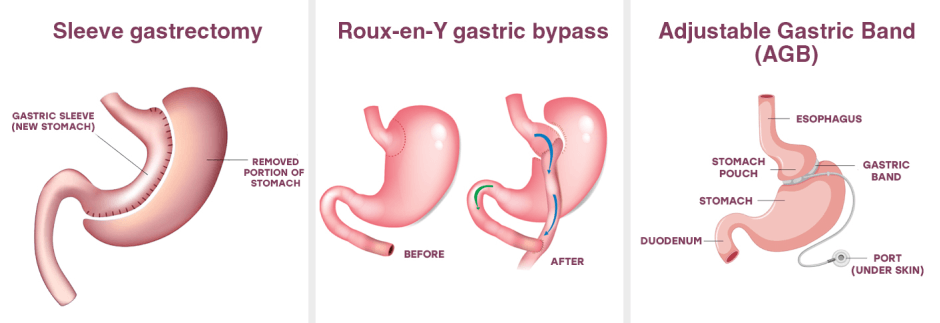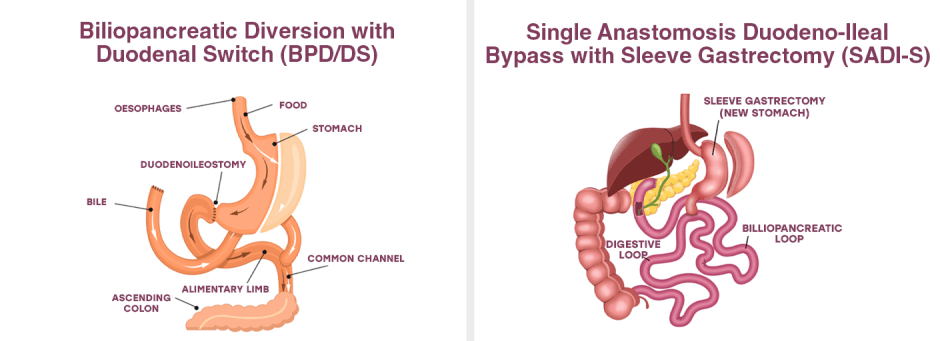
Obesity and type 2 diabetes go hand-in-hand, contributing to a cluster of biologic symptoms known as metabolic syndrome. Treating either symptom can profoundly improve the other, and the two are often tackled simultaneously. In its latest Standards of Care Supplement for 2024, the American Diabetes Association (ADA), draws on new approaches for weight management to guide clinicians in patient care.
Diabetes and Obesity Health Challenges
Obesity and type 2 diabetes present serious health challenges that shorten longevity and diminish quality of life. Both conditions have metabolic and musculoskeletal repercussions, and create psycho-social factors that impact mental health.
Multiple comorbidities often accompany diabetes and obesity, including:
- Hypertension
- Heart disease
- Kidney disorders
- Liver dysfunction
- Pancreatitis
- Circulatory issues
- Neuropathy
- Joint osteoarthritis
- Back and neck pain
- Plantar fasciitis
- Sleep apnea
- Poor immune function
- Depression and anxiety

During the COVID crisis, obesity and its comorbidities tripled the risk of hospitalization and death from COVID infection, according to the Centers for Disease Control and Prevention (CDC).
New Approaches for Weight Management and Diabetes Treatment
In its 2024 Standards of Care, the ADA highlights three key approaches for weight reduction and diabetes management:
Lifestyle and behavior modification
A nutrient-dense and physical activity are foundational pillars of health, and both are included in any new approach to weight management. Without lifestyle changes, patients will have a hard time achieving and maintaining weight loss goals.
A daily walking program is enough to push back against diabetes by lowering circulating blood sugar and releasing glucose from muscle cells. Adding resistance training can increase lean muscle mass, a key factor for elevating metabolism.
Replacing soft drinks, sugars, grains and processed foods with spring water, organic vegetables, grass-fed meats and wild-caught fish can provide you with essential nutrients without causing weight gain. A fresh foods diet will dramatically improve your gut biome and set you up for weight-loss success.

Behavior changes like not eating late at night, intermittent fasting, meditation and tuning into your body’s natural rhythms can be invaluable strategies for achieving your weight-loss goals. Stress management is essential for turning off fat-storing hormones.
Metabolic surgery
In extreme cases where obesity and diabetes are life-threatening, bariatric surgery may be recommended to reduce total food consumption and limit calorie absorption.
There are several evidence-based approaches to bariatric surgery:
1. Sleeve gastrectomy involves dividing and stapling the patient’s stomach, reducing its volume by up to 80%. The smaller stomach restricts the amount of food that can be consumed and absorbed.
2. Roux-en-Y gastric bypass is a procedure where the stomach is surgically shortened and reattached, reducing the digestive pathway and limiting the absorption of calories.
3. Adjustable Gastric Band (AGB) is a silicone device that is placed around the upper part of the stomach to limit total food intake. AGB is reversible and the procedure is somewhat less invasive than stapling or bypass surgery, but AGB is less effective in helping patients to lose weight.

4. Biliopancreatic Diversion with Duodenal Switch (BPD/DS) takes sleeve gastrectomy to a new level by creating a tube-like stomach pouch, separating the small intestine from the stomach, and connecting it to the newly created pouch, enabling food to bypass roughly 75% of the small intestine. The amount of food that can be eaten and the calories absorbed are reduced, but so are available nutrients, making patients dependent on supplements to meet nutritional needs. While BPD/DS is effective in reducing diabetes and lowering caloric intake, the procedure is complex, and the risks to the patient are greater than other procedures.
5. Single Anastomosis Duodeno-Ileal Bypass with Sleeve Gastrectomy (SADI-S) is a newer, more simplified version of BPD/DS. In this procedure, a smaller tube-shaped stomach is created and a loop of intestine is connected to the stomach. Food travels through the pouch and goes directly into the latter portion of the small intestine, mixing with digestive juices from the first part of the small intestine, allowing for better nutrient absorption.

It is important to note that any surgery comes with high risks, and most bariatric procedures cannot be reversed. Surgery can be extremely costly, with no guarantees of successful outcomes.
Pharmacotherapy
New injectable drugs and nutrient IV therapy offer promising solutions for biohacking weight loss and reversing type 2 diabetes.
- Semaglutide is an injectable and/or oral medication that was initially approved to treat type 2 diabetes. It works by mimicking glucagon-like peptide-1 (GLP-1), a digestive hormone secreted in your intestines after a meal. GLP-1 facilitates digestion and signals your brain when you have reached satiety. It helps to regulate insulin secretion and glucagon release, both factors that control blood glucose levels.
- Tirzepatide is an antidiabetic medication that has recently been approved by the FDA for weight loss. Tirzepatide works by imitating GLP-1 and gastric inhibitory polypeptide (GIP) — both digestive hormones secreted by the intestine after a meal. The hormones trigger insulin secretion, helping your body to manage blood sugar levels. Tirzepatide also slows down digestion and signals your brain that you are full and satiated. It is administered by weekly subcutaneous injection. Tirzepatide is approved by the FDA for chronic weight management in clinically obese adults, and for overweight adults with at least one additional metabolic condition such as high blood pressure, type 2 diabetes, dyslipidemia or heart disease.
- B12 MIC injections contain powerful doses of hormone-free ingredients that are naturally produced in your body. MIC injections work with your diet and exercise program to boost energy and stimulate fat metabolism. Each B12 MIC injection has lipotropic properties that help you to break down fat and metabolize it for energy.
- Nicotinamide adenine dinucleotide (NAD) is an essential coenzyme found in every living cell. NAD plays a vital role in energy metabolism, turning your body into a fat burning machine by speeding up your metabolism at the cellular level. Unlike semaglutide and tirzepatide, NAD is a nutrient and not a drug. As such, it does not require a prescription and has no unpleasant side effects. NAD has multiple health benefits beyond energy metabolism, playing a key role in numerous biological processes and DNA repair. NAD is also known to have anti-aging properties. NAD is most effective when administered via IV infusion.
Weight Loss Biohackers Health and Fitness Benefits
Achieving and maintaining a desirable weight has numerous benefits for health and fitness. Even losing a small percentage of excess body weight can improve your metabolic profile and enhance your quality of life.
According to the ADA, managing obesity can delay or even halt the progression from pre diabetes to type 2 diabetes. Moderate weight loss can improve glycemia and reduce the need for diabetes medications. Larger amounts of weight loss can even trigger remission of type 2 diabetes and related comorbidities.
Health and fitness benefits of obesity management include:

For many people who suffer from diabetes and struggle with obesity, losing weight is an uphill battle with a high rate of relapse. If lifestyle changes alone have failed to help you achieve your weight loss goals, it may be time to biohack your body with new approaches to weight management.
Get Semaglutide, Tirzepatide, MIC and NAD Therapy in NYC
If you’re ready to take control of your health, biohacking for weight loss has never been easier or more convenient. Invita Wellness is your one-stop-shop for FDA-approved weight management solutions to help you get your health back on track. Contact Invita Wellness today, and take proactive steps to launch you on your weight loss journey.
Launch you on your weight loss journey
contact InVita Wellness today
Book Now
456 Broadway 2 Floor, New York, NY 10013, USA
Resources
ElSayed, Nuha A., et al. “8. Obesity and weight management for the prevention and treatment of type 2 diabetes: standards of care in diabetes—2023.” Diabetes care 46.Supplement_1 (2024): S128-S139.
ElSayed, Nuha A., et al. “8. Obesity and weight management for the prevention and treatment of type 2 diabetes: standards of care in diabetes—2023.” Diabetes care 46.Supplement_1 (2024): S128-S139. .